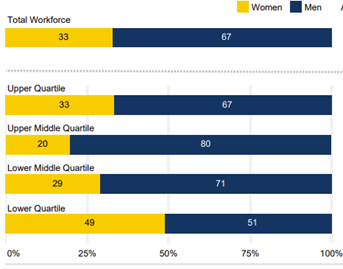Document Number DN 003.1/2025
This statement covers The Fruit Box Group’s commitment towards promoting a workplace that values diversity, equity and inclusion.
Covering Period FY 23/24
Introduction
The Fruit Box Group Pty Ltd (TFBG) has participated and provided data to Workplace Equity Gender Agency (WEGA) since 2013. Under revised legislation, all private companies in Australia with 100 or more employees will have their gender pay gap published. TFBG welcomes and supports these changes to create accountability and faster change across all industries in addressing gender pay gap issues within Australia.
TFBG Strategy
At TFBG, we encourage, value and leverage the diversity of people, and perspectives to achieve maximum business performance. It is critical to our success that we have a workforce as diverse as our customers. Focusing on diversity and inclusion supports our business strategy by attracting top talent and improving our decision-making.
Our engaged and inclusive teams encourage people to share their diverse insights and perspectives to help drive innovative solutions that accommodate our customers’ needs.
Gender Composition by Quartile

The chart divides employees into four equal quartiles. There is a disproportionate concentration of men in the upper quartiles and/or of women in the lower quartiles that has driven a positive gender pay gap for FY 23/24. The comparison group that TFBG is allocated to is an industry that primarily attracts men and therefore there is a disproportionate concentration of men in our gender composition graph.
2023-2024 Understanding the Gap
Equal pay is our legal obligation that is to give equal pay for equal work. Our GPG is not a result of equal pay issues, as we have a gender-neutral approach to pay across all levels of the workforce.
While we are maintaining a focus on increasing the number of women in senior positions, we also strive to uphold our guiding principle in which appointments are based on merit regardless of gender. TFBG’s average total remuneration pay gap is 5.4%. This indicates that men are paid more on average than women.
TFBG’s 23/24 GPG is low compared to the industry benchmark data of 10.9%. The industry comparison group is generated by a combination of the Australian & New Zealand Standard Industrial Classification (ANZSIC) industry class and equivalent sized organisations. ANZSIC is the national framework used to classify industries according to the primary activity. TFBG’s primary industry is noted as 4122, Fruit & Vegetable Retailing.
Pay gaps are not solely driven by gender alone, but are also affected by experience, part-time work and how long employees have been in their roles. The gender pay gap is the difference in earnings between women and men.
TFBG’s Enterprise Agreement 2022–2026 (EA) is in operation and differentiates compensation between job levels, not gender with wage increases applying to all under the scope of the EA. More men hold roles that attract higher remuneration and/or have access to significant overtime, shift premiums.
Longer tenure typically correlates with higher remuneration and career advancement. At TFBG, the average tenure of males is approximately 4.5 years longer than the average tenure of females.
We regularly review data relating to tenure, engagement, recruitment, succession, and uptake of flexible working options by women and men to monitor that our policies and practices are getting the right results.
We are committed to regularly monitoring remuneration pay gap, as equal pay is our legal and moral obligation
Gender Equity Indicators (GEI)
We take seriously our commitment to making TFBG a diverse and inclusive workplace and we remain committed to progressing in this space the following best practices.
We also believe in a consistent approach to measurement, more active monitoring and documenting policies and processes to improve our practices.
Based on the 2023/2024 Report Findings and the pay gap analysis, the following actions and or recommendations will be addressed in this next period:
| No. | GEI explanation | Actions or Implementation
|
| GEI 1 | Gender composition of the workplace | Review policies and practices that operate and support GEI 1.
|
| GEI 2 | Gender composition of governing bodies | Review the recruitment and selection policies ensuring that practice supports our commitment to appointing the best candidate for role regardless of gender and a consistent application of inclusive, merit-based and bias free recruitment practices. Train recruiting managers to align with policies and practices.
|
| GEI 3 | Equal remuneration between men and women | Review policies that operate and support GEI 3 including a review of the application of TFBG Enterprise Agreement 2022-2026 (EA) classification structure.
|
| GEI 4 | Availability and utility of employment terms, conditions and practices | Employment terms include conditions and practices relating to flexible working arrangement for employees and to working arrangements supporting employees with family or caring responsibilities.
Review all policies and practices that operate and support GEI 4.
|
| GEI 5 | Consultation with employees on issues concerning gender equality in the workplace.
|
Our strategy and practice is to give prompt and genuine considerations to any matter raised in the workplace. Our EA also contains a clause that requires us to consult with employees about a major workplace change that is likely to have a significant effect on them. Employees are provided with information and invited to give their views for consideration.
|
| GEI 6 | Sexual harassment, harassment on the grounds of sex or discrimination. | Review policies that operate and support GEI 6.
Training modules to be updated to reflect policies and legislation. |
Disclosure
This statement confirms that the published information is accurate as at the time of publishing.


